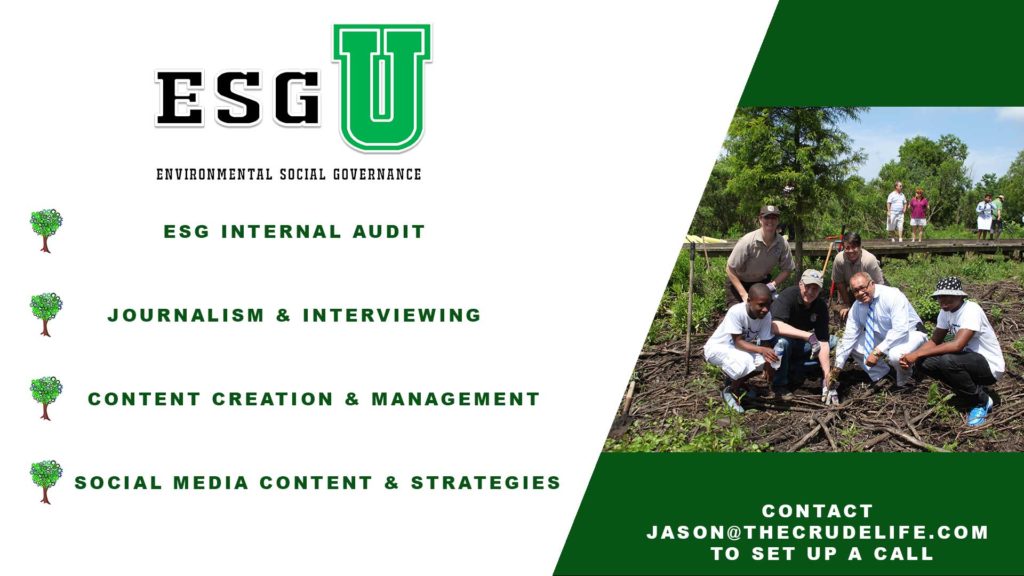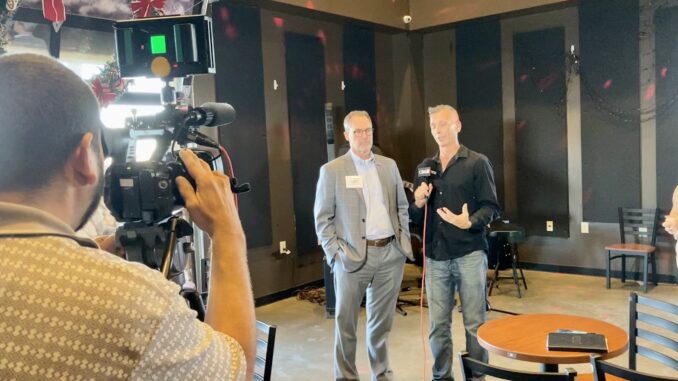
It is time to for all of us here to be adults and have an ESG Conversation about children. Currently children make up almost one-third of the world’s population and have major influence over the marketplace, legislation and corruption. Yes corruption. Believe it or not there are some people who use children for their personal gain. And others, just use children.
There are even those in elected and appointed power who abuse their position, job title and implied trust for personal gain. This is a real problem and it is getting worse not better despite the millions of tax dollars our trusted elected leaders direct to their appointed leaders.
More on that in a bit, but first a group that has become active in trying to introduce Children’s Rights into ESG.
In April 2021, UNICEF released “Tools for Investors on Integrating Children’s Rights Into ESG Assessment”, which is a 54-page PDF you can find by clicking here.
“Children are among the most marginalized and vulnerable members of society and can be disproportionately and permanently impacted by business activities, operations, and relationships,” said Anita Dorett, Director for the Investor Alliance for Human Rights. ”Investors should use their leverage to ensure that the companies they invest in categorically commit to respecting children’s rights in their own operations and through business relationships by conducting human rights due diligence to identify and address any actual or potential adverse impacts on children,” said Anita Dorett, Director, Investor Alliance for Human Rights.
“Children are both the present and the future, and business practices cannot be sustainable if they do not account for their impact on children. We’ve seen how the COVID-19 pandemic has hit children hard with disruptions to key services. The future of an entire generation is at risk. We urge investors to seize the unprecedented opportunity to reshape and reimagine a world for children and champion transformative change”, said Carla Haddad Madini, Director of UNICEF’s Division for Private Fundraising and Partnerships.
The basic overview of UNICEF’s tool is to “practically” highlight the implications of integrating children’s rights beyond child labor into investment decision-making. It contains guidance on assessing the “materiality of children’s rights”, an assessment framework consisting of scoring methodology and child rights due diligence indicators, and a chapter on data sources.
This is not a solution despite all the buzz words and ambiguous language, but, at least it’s a start and gets the conversation started.
The tool is designed to be “flexible and practical” to allow investors to integrate children’s rights into their own ESG assessment frameworks, however, UNICEF says it can also be used to conduct a stand-alone assessment on children’s rights.
The 2021 report follows the 2019 “Guidance for Investors on integrating Children’s Rights into Investment Decision Making” report co-authored by UNICEF and Sustainalytics.
It was developed through a series of consultations with investors, asset managers, ESG research providers and organizations with expertise in responsible business.
During the Investing Forward Podcast with Linda Roberts, she interviewed Stina Nillson from Sustainalytics about Child Labor and ESG. Here is a portion of the interview. Roberts starts.
Now, this has been a well-known and documented problem for decades. Unfortunately, chocolate companies have been unable to eradicate child labor from their supply chains. There continues to be pressure from investors, consumers, and human rights groups to fix the problem. Besides being a basic human rights violation, eliminating child labor can strengthen a company’s supply chain by making it more stable and more resilient. It could also improve investor confidence when there’s less of a concern of reputational risk. For example, just last summer, six African men sued Nestlé and Cargill, saying that they were former child laborers in the cocoa fields. They were trafficked out of Mali, forced to work long hours on cocoa farms in Cote d’Ivoire, and slept in locked shacks so they couldn’t escape. The Supreme Court said US chocolate companies can’t be sued for child slavery that occurs on African farms, but stories like this will continue to shine a spotlight of unwanted attention on the chocolate companies.
Nillson replies
So it’s a sector that I’ve been interacting with a lot. And there have been reports of child labor for many, many years now. So and we’re talking about reports of something around 1.5 to 2 million children working in cocoa and cocoa supply chains. So it’s maybe worth for background, I mean first, to note that the main cocoa-producing countries in the world are Cote d’Ivoire and Ghana. So lots of cocoa is produced in West Africa. And also produced by small-scale farmers. So we’re talking about millions of farmers and typically family farms. And this is also where widespread and systemic child labor has been found and is very well documented as well. So that’s yeah, that’s mainly what it looks like in the cocoa sector. And also widely recognized that poverty is really a main root cause behind the child labor. So simply I mean you know not having other resource but to I mean to also have your children involved in farming.
Click here for the Investing Forward Podcast Showpage
This Predator in Power leadership has been happening for the past 10-20 years in the United States too, only it’s a different form of child abuse. In the United States it’s more psychological and passive aggressive sexual abuse than physical labor in the fields or sweatshop.
According to the CDC.gov, at least 1 in 7 children have experienced child abuse or neglect in the past year in the United States. This is likely an underestimate because many cases are unreported.
Furthermore, according to ChildHelp, every year more than 4 million referrals are made to child protection agencies involving more than 4.3 million children. The number may be higher because a referral can include multiple children.
Globally, the United States has one of the worst records among industrialized nations – losing on average 5 children every day to child abuse and neglect. In 2019 alone, state agencies found over 656,000 victims of child maltreatment.
For context, the number of victims of child maltreatment could fill a 60,000 seat stadium like Soldier Field in Chicago 10 times. Incidentally the 656,000 child victims are more than the Chicago Bear’s entire 2021 home attendance of 486,675.
Recently the North Dakota Department of Human Services was audited and received a negative report for their work helping and protecting children. Click here for the story
The North Dakota Department of Human Services has routinely failed to perform timely checkups on suspected victims of child abuse and neglect, according to a state audit.
It’s the third time in five years the agency has been flagged for the issue, but a “drastic increase” in suspected abuse during the COVID-19 pandemic added to the agency’s workload in an area where it had already struggled, said State Auditor Josh Gallion, who released the report Tuesday, Aug. 16.
Gallion’s report reveals the agency has not followed its own policy to make prompt face-to-face contact with children suspected to be abused or neglected.
Furthermore, the report had shown the state agency got audited for misappropriating funds internally.
An audit of the North Dakota Department of Human Services found $629 million in financial statement errors made by DHS in its annual comprehensive financial report.
Additionally, the audit identified 130 DHS employees who received bonuses but did not qualify for them. The total amount of these bonuses was $157,000.
The report also identified concern over internal controls for the Drug Rebate and Analysis Management System, which the audit said were “inadequate” and likely led to an error rate of over $6.2 million.
This is the sixth year in a row DHS has not been following its policy of checking on children in abusive situations within 24 hours, according to Gallion.
One would think this type of report would prompt accountability action from public officials and elected leaders. Not in North Dakota. Less than a week later US Senator Kevin Cramer announced that he was able to direct $3M of tax payer dollars to ND Human Services. From the US Senator’s press release.
The funds will be used to provide resources to improve the mental health outcomes for children and youth, birth through age 21, with serious emotional disturbances and their families.
Click here to read the entire press release from US Senator Kevin Cramer.
Then a week later, Senator Cramer gave ND Human Services $1.8 millions more.
Why are so many elected leaders using children for marketing purposes while directing millions and millions of dollars to unaccountable appointed leaders? This type of leadership used to have zero tolerance, but now it’s quid pro quo for politicians and opportunists to profit off of.
The harsh truth is that many of the same leaders have been in power for over a decade now receiving tax-payer-funded raises and special privileges that the tax payers fund, but do not receive.
This political grafting and grifting is very common in North Dakota and other states, and is just another example how the government continues to throw millions of tax payer dollars at unaccountable agencies and appointed leaders rather than addressing the problem.
Right now in your home state, there are a number of Predators in Power who are using tax dollars to satiate the Entitled Enablers.
The long-term financial impact of abuse and neglect is staggering.
According to ChildHelp, for cases in 2015 alone, the estimated lifetime cost of lost worker productivity, health care costs, special education costs, child welfare expenditures, and criminal justice expenditures is over $830,000 per victim.
The estimated U.S. economic burden of child maltreatment based on 2015 investigated incident cases (2,368,000 nonfatal and 1670 fatal victims) was $2 trillion.
For additional context, if our elected and appointed leaders would stop using children as props and solve these horrific issues, it would save enough money to fund a college education for 70% of the children in the United States.
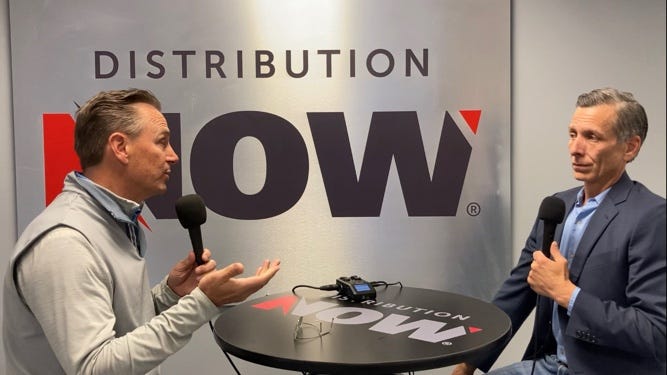
One media brand that has been addressing the issue of sex trafficking children and industry is The Crude Life. This is one social issue The Crude Life believes industry can become proactive on – Sex Trafficking.
The Crude Life’s Chief Intention Officer Jason Spiess and Midland (TX) Mayor Patrick Payton have had multiple conversations on The Crude Life regarding this terrifying back alley business.
Sex trafficking is a serious issue in the United States and is becoming ESG Social issue number one for families with children in the states with oil activity.
Payton, who hosts the No Neutral Moments podcast, interviewed Lisa Bownds, the founder of Reflections Ministry. Bownds, who was a member of Payton’s church, became “awakened” to the issue of Sex Trafficking through her own personal experiences.
Furthermore, Payton recently attended a press conference with US Senator John Cornyn on sex trafficking in the Permian Basin to address the increasing number of our youth being impacted.
“The thing that is alarming is you hear the word sex trafficking and your mind cannot comprehend how extensive it is,” Payton said. “It’s a $150B industry in the United States. Most children are groomed into sex trafficking before they are 17-years-old. It’s 12 or 13, it’s 8 or 9, these are hard things to hear but they are trafficked 30-to-40 times a day.”
Both Payton and Spiess believe this is one area the industry can become very helpful and proactive. Spiess mentions how he uses sex trafficking as a Social issue example in his ESG University Classes and Curriculum while Payton challenges Spiess and others to add it into their programs too. Not just cite it as an example.
“There’s a wake up happening towards this issue here in the Permian Basin. The average predator is an average white man 50-year-old,” Payton said. “We have to wake up to this, we have to make sure our industry wakes up to it and we have to make sure that at man camps and other places where they do safety meetings they are talking about more than the safety of wearing a hard hat but the safety of your sexuality and what is happening around you.”
Click here for The Crude Life’s showpage with Patrick Payton
Again, the average sex trafficking predator in the United States is a 50-year-old white American man.
According to the North Dakota’s 2020 Attorney General’s Human Trafficking Commission Report, the state served 99 victims of human trafficking—56 adults, and 43 children; 79 were North Dakotans. Since it’s 2015 inception the task force has serviced 650 victims of human trafficking across the state.
What makes this issue suo difficult is the Internet. Sex Trafficking often begins on the Internet and just waits. The sexual predator just waits and waits for years and years if they have to, until the teenager gets into a fight with parents or friends and needs a new outlet in the moment.
The Crude Life interviewed Ashley Smith when she was with Truckers Against Trafficking a couple times regarding the issue of sex trafficking (Ashley joined Marathon Oil last month). Once in the Bakken oil fields (ND) and once in the Permian Basin (TX).
In Texas, Ashley joined Spiess as a “special guest co-host” of The Crude Life when they interviewed Texas Senate Candidate Kevin Sparks about ESG, Social Issues and specifically – sex trafficking with children.
“These predators are just engaging with your children online when they are less than 10-year-old in many cases,” Ashley said. “At any time they could be working on 10-50 children just waiting for them to have a bad day or low self esteem.”
The interview dives into the warning signs and also what action items people should take. During the November 2021 interview in Texas, it was disclosed during the interview that earlier in the week a family of Sex Traffickers had been caught for selling their 3-year-old and 6-year-old.
You read that right, they got caught for selling their own children.
Click here for The Crude Life showpage with Smith and Sparks
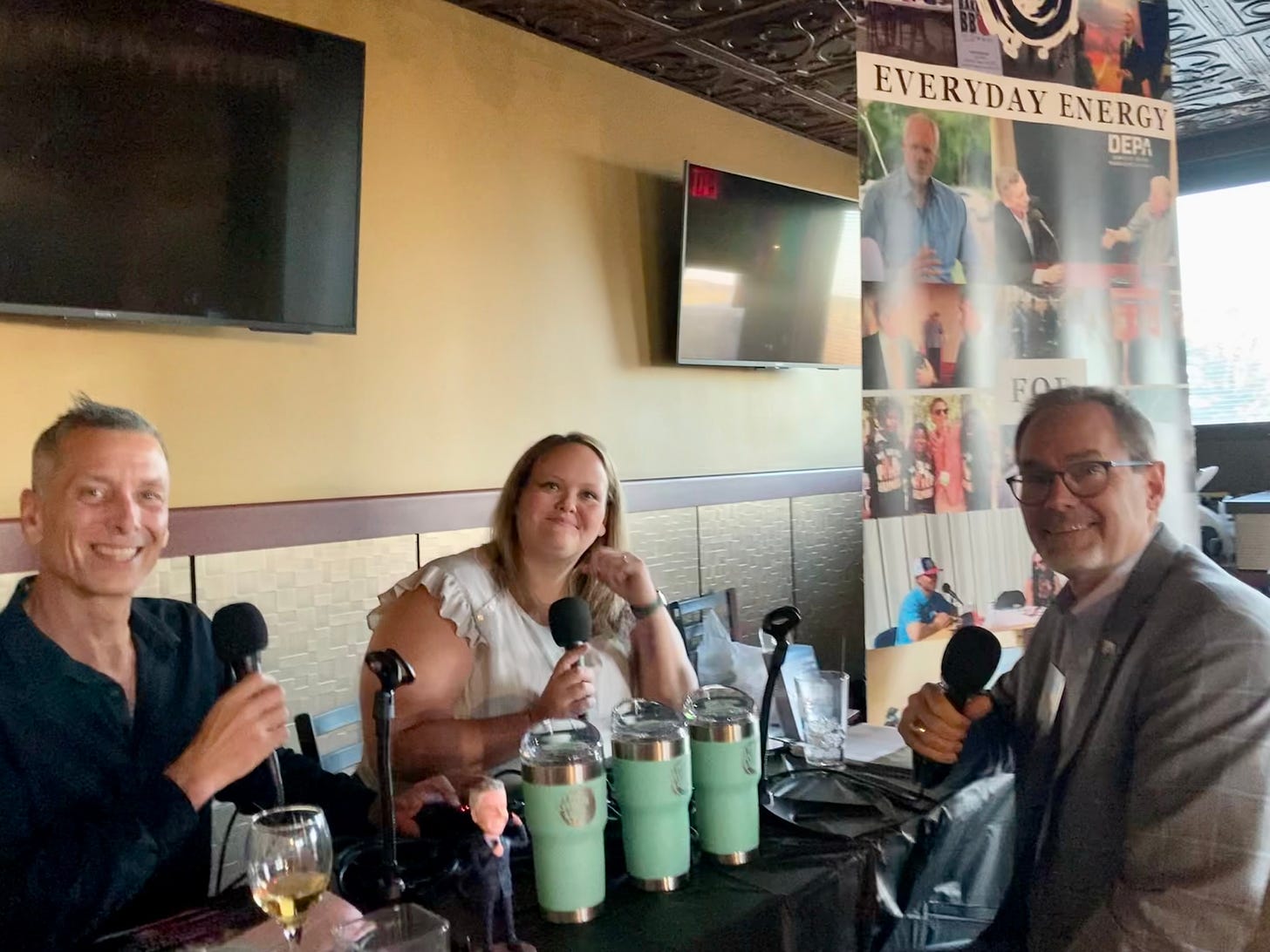
In conclusion this week as we just start the conversation about Children and ESG, I circle back to the Mayor of Midland Patrick Payton.
And just like a sermon on Sunday, the former full-time Pastor leads brings our ESG conversation into a place of acceptance, service and gratitude.
“There’s nothing negative about paying attention to and protecting your environment. There’s nothing negative to paying attention to and protecting your social welfare and social fabric of your community,” Payton said. “There’s nothing really different between the sacred and the secular when it comes to our workplace. And there is nothing wrong with talking about governance and making sure we are representing people.”
He continued saying the majority of the people in the industry put their head down, work hard and support their families. This leaves little time to study up on ESG or understand the geopolitics behind the new special interest acronym-of-the-week.
“It’s a wake up call right now as an industry to say hang on a minute. Environmental Social Governance matters,” Payton said. “So let’s make sure we take care of that before we are MADE to take care of it through regulation.”
Questions or Comments? Do you have an ESG University story idea or Screenshot Submisison? Email: info@esgu.org
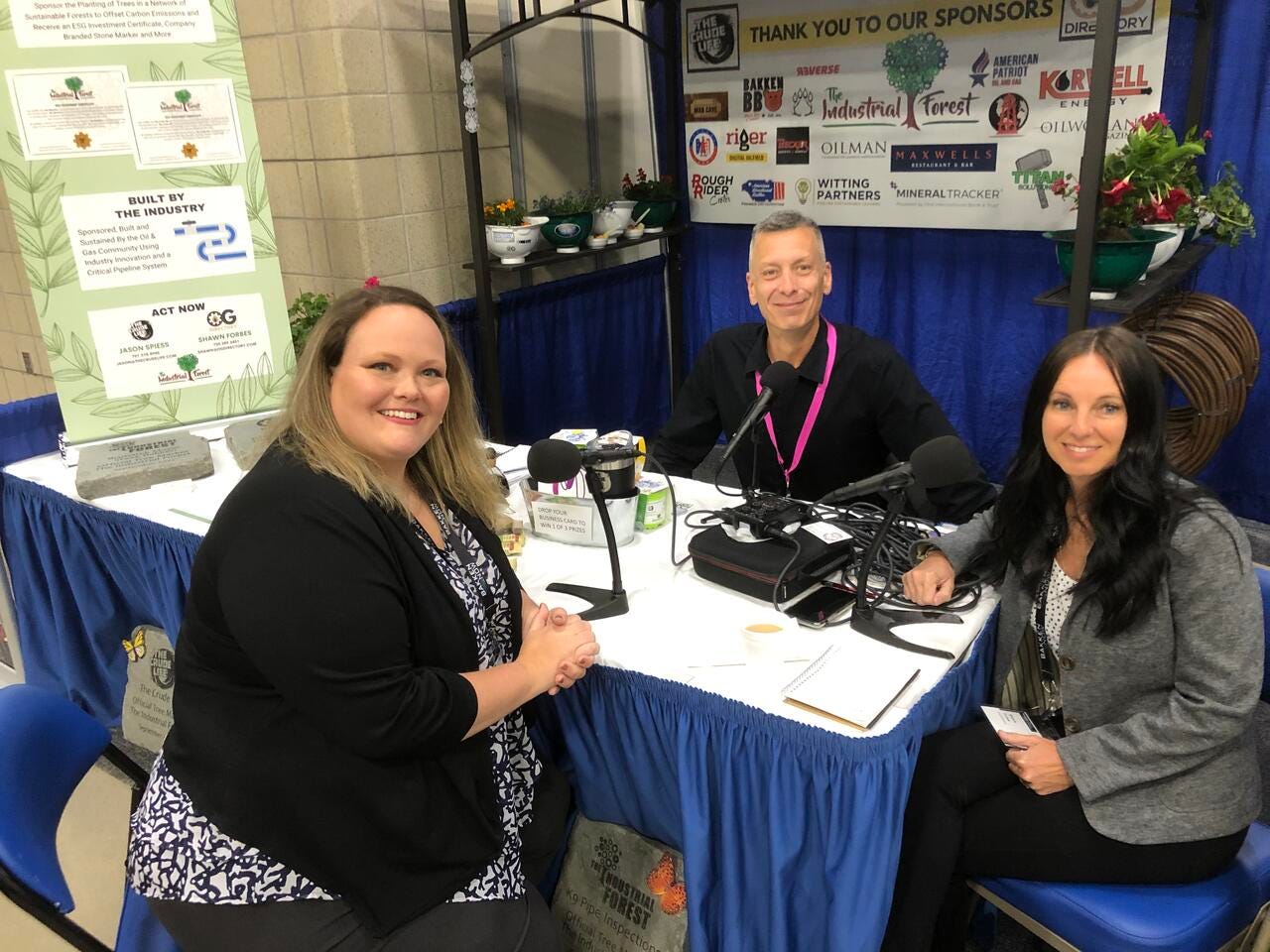
About The Crude Life
Award winning interviewer and broadcast journalist Jason Spiess and Content Correspondents engage with the industry’s best thinkers, writers, politicians, business leaders, scientists, entertainers, community leaders, cafe owners and other newsmakers in one-on-one interviews and round table discussions.
The Crude Life has been broadcasting on radio stations since 2012 and posts all updates and interviews on The Crude Life Social Media Network.
Everyday your story is being told by someone. Who is telling your story? Who are you telling your story to?
#thecrudelife promotes a culture of inclusion and respect through interviews, content creation, live events and partnerships that educate, enrich, and empower people to create a positive social environment for all, regardless of age, race, religion, sexual orientation, or physical or intellectual ability.
Sponsors, Music and Other Show Notes

Studio Sponsor: The Industrial Forest
The Industrial Forest is a network of environmentally minded and socially conscious businesses that are using industrial innovations to build a network of sustainable forests across the United States.
Weekly Sponsor: Stephen Heins, The Practical Environmentalist
Historically, Heins has been a writer on subjects ranging from broadband and the US electricity grid, to environmental, energy and regulatory topics.
Heins is also a vocal advocate of the Internet of Everything, free trade, and global issues affecting the third of our planet that still lives in abject poverty.
Heins is troubled by the Carbon Tax, Cap & Trade, Carbon Offsets and Carbon Credits, because he questions their efficacy in solving the climate problem, are too gamable by rent seekers, and are fraught with unreliable accounting.
Heins worries that climate and other environmental reporting in the US and Europe has become too politicized, ignores the essential role carbon-based energy continues to play in the lives of billions, demonizes the promise and practicality of Nuclear Energy and cheerleads for renewable energy sources that cannot solve the real world problems of scarcity and poverty.

Weekly Sponsor: Great American Mining Co
Great American Mining monetizes wasted, stranded and undervalued gas throughout the oil and gas industry by using it as a power generation source for bitcoin mining. We bring the market and our expertise to the molecule. Our solutions make producers more efficient and profitable while helping to reduce flaring and venting throughout the oil and gas value chain.

Join Podcasters from across the world and all walks of life as they unite to bring civil solutions to life and liberty.

Studio Email and Inbox Sponsor: To Be Announced

Featured Music: Alma Cook
For guest, band or show topic requests, email studio@thecrudelife.com
Spread the word. Support the industry. Share the energy.


